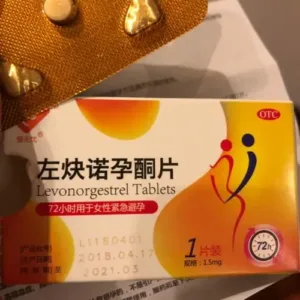Clopidogrel Bisulfate Tablets.
Function:
Patients with myocardial infarction (from a few days to less than 35 days), ischemic stroke (from 7 days to less than 6 months), or patients with confirmed peripheral arterial disease. Acute coronary syndrome in patients with non-ST-segment elevation acute coronary syndrome (including unstable angina or non-Q-wave myocardial infarction), including patients with stent placement after percutaneous coronary intervention, combined with aspirin. It is used in patients with ST-segment elevation acute coronary syndrome. It can be used in combination with aspirin in thrombolytic therapy. Alternative treatment for patients with aspirin allergy or intolerance.
Dosage:
Adults and the elderly are generally recommended to take 75 mg orally once a day for adults, but depending on age, weight, and symptoms, 50 mg may be taken orally once a day, with or without food. For patients with acute coronary syndrome and non-ST-segment elevation acute coronary syndrome (unstable angina or non-Q-wave myocardial infarction), clopidogrel should be started with a single loading dose of 300 mg, followed by 75 mg daily. It is recommended to take the medicine once continuously for 12 months (while taking aspirin for a long time). ST-segment elevation acute myocardial infarction: A single loading dose of clopidogrel 300 mg should be started, followed by 75 mg once a day for at least 4 weeks (with aspirin, with or without thrombolytic agents). For patients older than 75 years, do not use a loading dose of clopidogrel. Patients with recent myocardial infarction (from a few days to less than 35 days), recent ischemic stroke (from 7 days to less than 6 months), or patients with confirmed peripheral arterial disease: The recommended dose is 75 mg once daily. There is no experience with use in children.
Adverse reactions:
Common adverse reactions: blood system: non-serious bleeding (3.6%-5.1%); serious adverse reactions: cardiovascular system: coronary stent thrombosis; skin: fixed drug eruption; gastrointestinal tract: colitis, gastrointestinal bleeding ( Increased risk of bleeding when combined with aspirin); Blood system: agranulocytosis, aplastic anemia, major bleeding, pancytopenia (severe), thrombotic thrombocytopenic purpura; Liver: hepatitis, hepatotoxicity, liver failure; Immune system: hypersensitivity reaction; nervous system: epidural hematoma, intracranial hemorrhage; eyes: intraocular hemorrhage; others: rebound effect will occur after withdrawal of the drug.
Drug contraindications:
Do not use if allergic to this product and have renal impairment. Use with caution
Share:
Products
Our offers
Health Classification
Let us work together to protect precious health
































